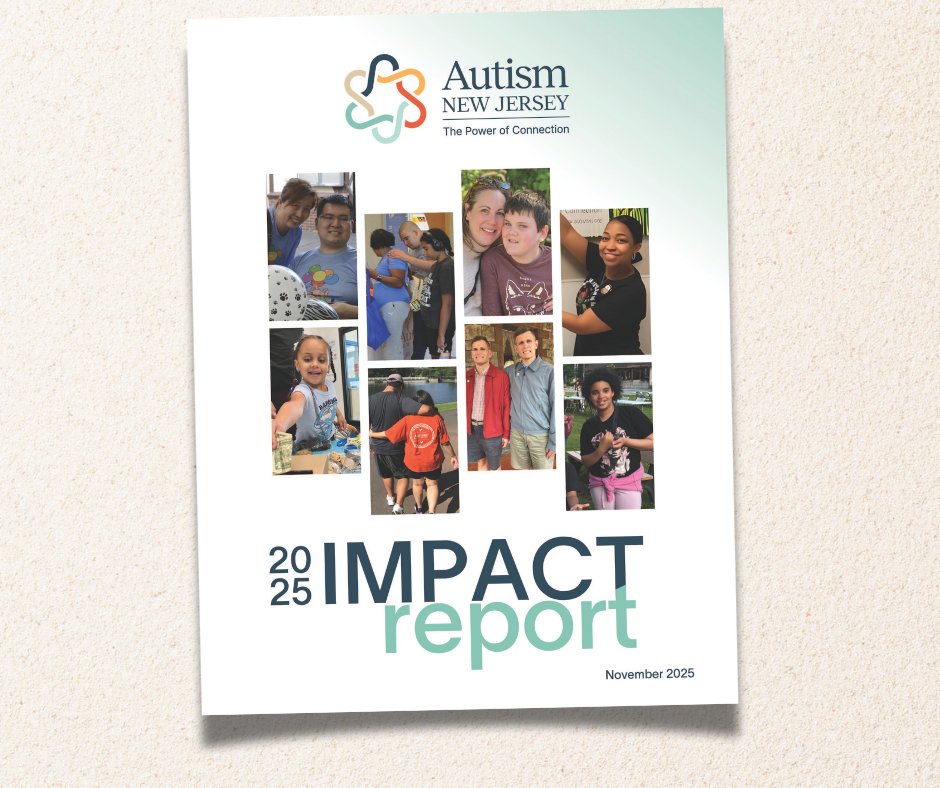
Over the last few years, Autism New Jersey’s 800.4.AUTISM Helpline has seen an increasing number of calls from adults who, while not formally diagnosed with autism as a child, suspect they may be on the spectrum.
“I’m in my mid-30s and after much research, I think I may have undiagnosed autism.”
This caller and the dozens like them are seeking information about where they might go to be evaluated.
We spoke with Dr. Natalie Schuberth, a clinical psychologist with more than 20 years experience diagnosing and treating individuals with autism, about this trend and when, how, and why an adult might want to get evaluated for suspected autism.
Can you get tested for autism as an adult?
Can you get tested for autism as an adult? Yes.
Should you get tested for autism as an adult? It depends.
It seems that autism awareness campaigns have been successful, and our society is much more aware of autism than it was just a decade or two ago. While this is great news for kids growing up today, it means that there are likely adults with autism who never received a diagnosis of autism spectrum disorder (ASD) when they were young.1
If you have made it to adulthood without an ASD diagnosis and in fact have autism, then it is likely that you have learned to compensate for your difficulties. Some of these compensation strategies may include observing and copying social behaviors of peers. Other compensation strategies may include alcohol and other substance use, particularly before social activities. Being able to compensate for or “mask” autism symptoms or deficits has likely been adaptive but may also make it difficult to diagnose autism; this tends to be particularly true for females with ASD.
What are the difficulties faced by adults with autism?
As a psychologist, when adults reach out to me suspecting that they might have autism, it is usually because they are running into problems. They may have conflict with coworkers or supervisors at work, and therefore are being reprimanded for interpersonal strife, getting passed up for promotions, or even being fired. Alternatively, they may have trouble understanding and overcoming marital/relationship difficulties. They may not be picking up on and understanding their partner’s point of view, possibly making them seem rude, selfish, or uncaring when this is not the case.
Of course, there are many other reasons for interpersonal difficulties other than autism, such as Social Anxiety Disorder, Attention-Deficit/Hyperactivity Disorder, and personality disorders. Another disorder that often has overlapping symptoms with ASD is Obsessive-Compulsive Disorder. Individuals with autism are also susceptible to developing other disorders such as depressive disorders, eating disorders, and substance-related disorders.
The goal, of course, is to not over-pathologize or attach as many diagnoses as possible to a person. Proper diagnosis can help guide treatment (e.g., medication, therapy). When clients ask me if a behavior is a sign of a specific disorder, I ask if it is interfering with functioning in social, work, or school settings. That is where we want to start. Is this behavior interfering with living the life you want to be living? In addition, I often see ASD (and what used to be called Asperger’s Syndrome but now fits under the umbrella of ASD) as a personality type: not good, not bad. Unfortunately, being different than the mainstream is not easy.
Why might an individual want to be assessed for autism?
There are several reasons someone might seek an autism assessment.
- Government Services: One reason that an evaluation might be absolutely necessary is if an individual is applying for services through the New Jersey State Division of Developmental Disabilities. Services may include career planning, transportation, therapies, and fiscal management. Depending on an individual’s situation and needs, they may also be eligible for Medicaid, low-income housing, and more. DDD can also provide supportive employment services and help individuals with autism get and keep a job.
- Other supports and accommodations: Having a documented disability recognized by the Americans with Disabilities Act (ADA) may entitle an individual to certain protections and reasonable accommodations in work, school, housing, and other community settings.
- Self-understanding: Many individuals want to understand themselves better. If they can better understand what is getting in the way, particularly of interpersonal relationships, they can explain how they are wired to others in their lives. They can also work on these deficits or learn to work around them individually and as a couple, if applicable.
What’s involved in an autism evaluation?
An autism evaluation may consist of one or more meetings with a clinician. During these meetings, the clinician will ask you questions about your life (past and present). With your permission, they may also want to get some information from a parent/guardian or partner that knows you well (this can be helpful but is not required). In addition to this more conversational interview, the clinician may do some testing with you which is interactive and looks at your behavior and communication and may also require you to answer questions and solve puzzles. The clinician may also ask you to fill-out some questionnaires.
Autism testing can be expensive and time-consuming. Clinicians may not be available close to where you live, and there can be long waitlists to get evaluated.
How can someone get evaluated for autism?
While there are many resources for children to be evaluated for ASD, it can be harder to find a professional who conducts evaluations for adults. The best bet is to find a psychologist or psychiatrist who advertises this service. An individual may want to contact Autism New Jersey’s 800.4.AUTISM Helpline or visit their online referral database. They can also try websites like Psychology Today and the New Jersey Psychological Association’s “Find a Psychologist” page.
What if an individual decides not to go forward with autism testing?
If you want to understand yourself better and improve your relationships and functioning, then you might be able to skip right to working with a psychologist or other therapist who has experience working with individuals with similar difficulties. I recommend speaking with the clinician on the phone, video conference, or email to try to get a feel for whether they may be a good fit for you. It’s okay if you cannot tell right away. It can be hard to determine this, especially if interpersonal interaction is already difficult for you.
When I work with individuals with ASD, I tell them that I am not trying to “fix” them because I don’t think that they are broken. My job is to help them figure out what is getting in the way of living life the way that they want and to help them get closer to living their best life. The goal is not to make them like everyone else. Like all individuals, people with autism have gifts and strengths. Part of the goal of therapy is teaching an individual what is expected in various settings and what will happen if they do or do not engage in these behaviors. Then, it is up to them to decide how to proceed. Therapy is an interpersonal interaction in and of itself so the therapist can help identify and work through interpersonal difficulties in that relationship.
Has the COVID-19 pandemic impacted autism evaluations?
Yes. Social communication and social interaction can be difficult to assess in an online/virtual evaluation. On the other hand, online evaluations might be preferable to an in-person evaluation while wearing masks, which hide a lot of social cues. Clinicians are doing their best to adapt and assess clients in a valid and timely way.
Individuals may want to talk to their professional about how this may impact testing and how it may impact how you can use the evaluation; some government agencies (including schools) and standardized testing agencies do not accept evaluations if they were conducted remotely or if modifications were made to standardized evaluation procedures. On the plus side, the increase in telemedicine is allowing more people access to these ASD specialists where maybe there are none in their immediate geographic area.

In addition to working with individuals with a variety of presenting problems (i.e., anxiety, depression, OCD, ADHD, school stress, relationship issues, social difficulties), Dr. Schuberth has more than 20 years of experience working with individuals with autism spectrum disorder including what was formerly known as Asperger’s Disorder and their families in private practice, hospital, school, home, and community settings. For more information, visit: pathpsyc.com
Experience Our Power of Connection
Have questions of your own? Autism New Jersey has expertise in the complexities of seeking an adult autism diagnosis and navigating the adult service system. If you have any questions, call our 800.4.AUTISM Helpline, email information@autismnj.org, or use the chat/messaging feature at the bottom of your screen.
1The author defers to an individual on how they choose to identify. However, consistent with person first language, the author uses the phrase “a person with autism” as opposed to “an autistic person” throughout this article. If you would like to explore the topic of person-first language, you can visit Language — Person with Autism vs. Autistic Person.









